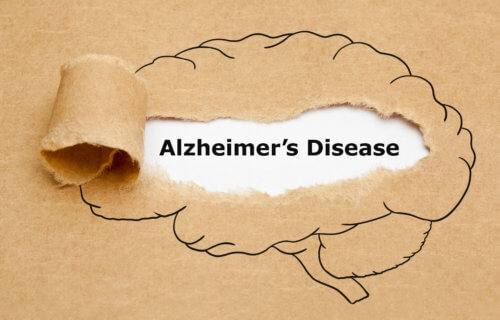MAGDEBURG, Germany — Along with trying to find a cure, scientists are still trying to understand what causes some people to develop Alzheimer’s disease while others don’t. A new study finds the cause may be the brain’s memory center going into overdrive. Researchers in Germany say this leads to early dementia symptoms including disorientation and offers hope of stopping the disease in its tracks.
Paradoxically, the study finds excess neural activity in the hippocampus makes older adults forgetful rather than better at remembering facts and figures. Navigation skills are one of the first cognitive abilities to decline during Alzheimer’s.
Now, researchers believe they have identified the mechanism behind spatial learning problems later in life. Scans showed neurons in the hippocampus become excitable, making signals in grey matter too “noisy” and hindering performance.
“Reducing hippocampal activity could become a treatment option for improving memory performance in aging adults,” lead author Dr. Nadine Diersch of the German Center for Neurodegenerative Diseases says in a media release.
Getting around town can be stressful for older adults
In the study, mentally healthy younger and older adults learned the layout of a virtual reality town. Afterwards they estimated the location of different landmarks while brain activity was measured with fMRI (functional magnetic resonance imaging).
The 61 to 72 year-olds did not do as well as those between 21 and 28 years-old. Older participants also took longer to memorize the town map. As the older group mastered it and their results improved, activity in the hippocampus decreased. Meanwhile, brain cells in other other navigation areas fired up.
“Key structures of the brain’s navigation circuit are particularly vulnerable to the deleterious consequences of aging,” Dr. Diersch and the team write in the JNeurosci.
“Declines in spatial navigation are among the earliest indicators for a progression from healthy aging to neurodegenerative diseases. Our study is among the first to provide a mechanistic account about how physiological changes in the aging brain affect the formation of spatial knowledge.”
The computer simulated space was based on Tubingen, a typical German historic city center consisting of town houses, shops, and restaurants. It had a square-like shape with four-way intersections. A church and a town hall were placed at the end of one of the streets. All 34 volunteers confirmed they had never visited Tubingen before the time of testing.
“Performance improvements were considerably reduced in healthy older compared to younger adults, when they were asked to retrieve the spatial layout of an initially unfamiliar environment,” Dr. Diersch notes in a statement to SWNS.
“They further showed a higher uncertainty when familiar locations were experienced from novel viewpoints during learning. At the neural level, activity in the hippocampus changed dynamically as a function of learning in younger adults, whereas this was not the case in older adults.”
New treatment path for Alzheimer’s disease researchers
The findings have important therapeutic implications and add to growing evidence linking a hyperactive hippocampus to memory problems. One recent trial suggested an epilepsy drug called levetiracetam – which dampens the hippocampus – slows the progression of dementia.
“Exploring our surroundings has always been one of the hallmarks of human identity,” Diersch continues. “To do so, we need to rapidly generate spatial representations and flexibly retrieve them later. With advancing age, however, these abilities deteriorate considerably. Older adults are slower in learning novel environments and have problems to utilize this information later.”
Moreover, learning landmark locations during exploratory navigation is more difficult for older participants whereas spatial memory is relatively preserved for familiar environments.
“As a consequence they may avoid unfamiliar places and become overwhelmed when confronted with changes in their environment,” the researcher concludes. “A failure to inhibit hippocampal activity could make brain signals too noisy, hindering spatial navigation performance.”
According to the Centers for Disease Control and Prevention, over five million Americans suffer from Alzheimer’s disease. Officials expect that number to grow to 14 million by 2060. The majority of studies investigating potential drugs have focused on clearing beta-amyloid and tau protein tangles from the brain. To date, no treatments have conclusively reversed the development of dementia.
SWNS writer Mark Waghorn contributed to this report.
